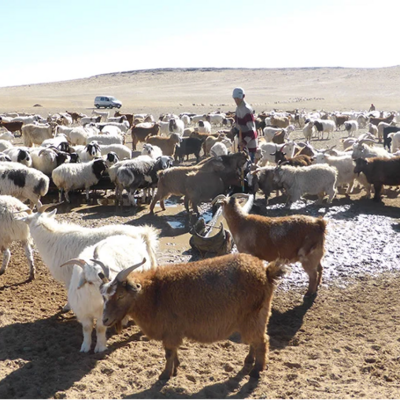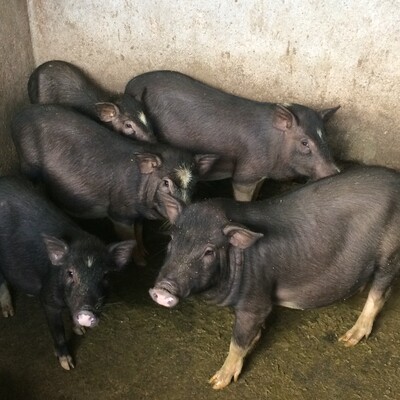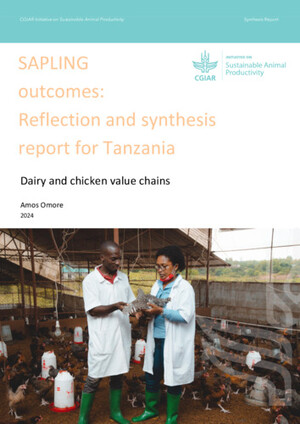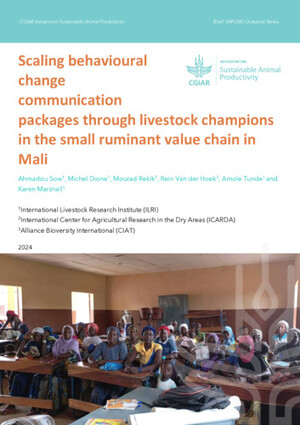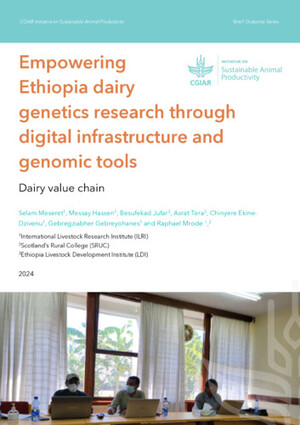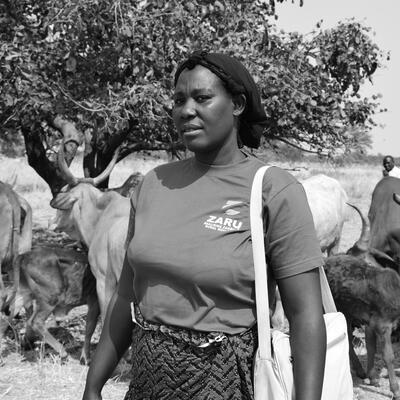
Building a data-driven future for Nigeria’s livestock sector
‘We cannot underestimate the power of data in driving informed decision-making, solving complex problems, and unlocking new opportunities.’ – Mustapha Popoola, special adviser on animal agriculture innovation systems and nutrition security.
From 11–14 December 2023, the International Livestock Research Institute (ILRI) in collaboration with the Livestock Productivity and Resilience Support (L-PRES) project organized a baseline data workshop for the Nigerian Livestock Master Plan (N-LMP). Held in Abuja as a follow up to the LMP launch and other preliminary activities, the workshop aimed to collect and validate data on priority livestock value chains in Nigeria—cattle, sheep, goats, chickens and pigs—laying the groundwork for informed investment decisions that will drive the country’s livestock sector forward.
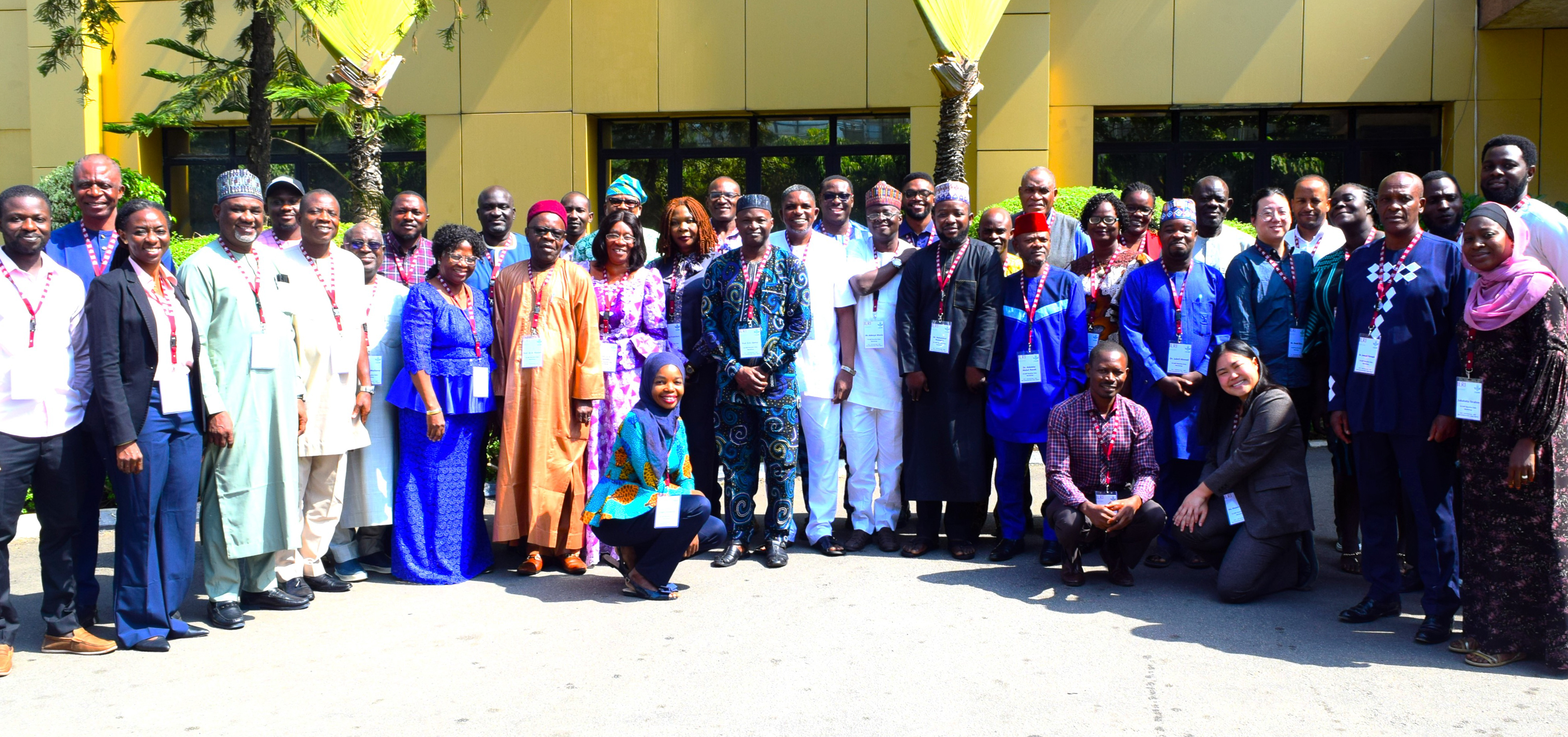
The Nigerian livestock sector, despite its significant potential, grapples with challenges such as fragmented value chains, resource inefficiency, inadequate disease control, and inadequate capacity and reach of its livestock research centres. These issues hinder productivity, profitability and nutritional accessibility, and are further compounded by the lack of relevant data to inform appropriate interventions. The N-LMP confronts these challenges through a data-driven approach, using data to inform a livestock value chain-specific, five-year investment plan that feeds into a 15-year livestock sector strategy. This development process identifies key areas for intervention, enabling targeted investments in high-impact areas that strengthen value chains, enhance resource management, and inform effective livestock disease control and other intervention strategies.
The baseline data workshop brought together diverse stakeholders from across Nigeria’s livestock value chains, including the private and public sectors, researchers, policymakers and industry representatives, to ensure that the N-LMP is derived from a broad base of evidence and can secure meaningful buy-in for its implementation. Focusing on each of the five priority livestock value chains, experts defined a shared vision for the development objectives of the livestock sector in Nigeria over the next decade; identified key players, interactions and processes and their impact in the value chains; validated baseline data; and pinpointed crucial stakeholders for the N-LMP's engagement strategy.
Nigeria’s vision for the livestock sector
The session on Nigeria’s vision for the livestock sector was an open discussion to find common ground between participants’ hopes and concerns regarding the current or future status of the sector. Poultry expert Oluwafunmilayo Adebambo, emeritus professor of animal breeding and genetics at the Federal University of Agriculture, Abeokuta (FUNAAB) and developer of the FUNAAB- Alpha chicken breed, shared her vision for a sector in which the government invests more in infrastructure, such as livestock breed multiplication centres, and institutions such as sector-specific universities and research programs.
‘These investments would make climate-resistant local breeds of animals more widely available, including for international exports, and increase animal productivity,’ Adebambo said.
Enhancing governance structures to support N-LMP implementation was part of the joint vision. The N-LMP, a key deliverable of L-PRES to the Federal Ministry of Agriculture and Food Security (FMAFS), aligns closely with the ministry's priorities. Mustapha Popoola, special adviser on animal agriculture innovation systems and nutrition security, and a long-time champion of a national animal gene bank, reiterated his unwavering commitment to the N-LMP and several other initiatives, emphasizing their roles in long-term sustainability.
Echoing recommendations from the recent livestock reforms report submitted to the president by former governor of Kano State, Alhaji Abdulahi Ganduje, and Nigeria’s Vision 2020, Popoola advocated for the urgent establishment of a ministry of livestock resources and nutrition security, 'This ministry is vital for expediting the livestock master plan and driving reforms outlined in Vision 2020, unlocking its full potential.’
Prioritizing and mapping Nigeria’s livestock value chains
Popoola further emphasized the need to break down the generalized animal production space into specific value chains and interventions. He highlighted the importance of separating the feed chain from the food chain to alleviate competition between humans and animals by expanding value chains and defining specific roles.
During the workshop, participants ranked their priority value chains, which will be reviewed alongside the priorities of L-PRES and FMAFS. Using this data, the N-LMP will highlight specific value chains and interventions to invest in to meet the country’s sustainable development goals.
To pinpoint potential areas of intervention, participants mapped the livestock value chains where their expertise lay – poultry, pig, dairy, beef or small ruminants. Mapping allowed the team to go beyond theory and understand the nuances of how value chains operate within Nigeria, thereby building a robust data set for the livestock sector.
Validating critical livestock data
Popoola criticized the use of outdated and poorly estimated data, advocating for baseline data from credible sources like the N-LMP that align with Nigeria’s priorities. He underscored the significance of the outcomes of the baseline workshop in ensuring alignment and effective collaboration among all stakeholders.
A significant amount of the workshop time was spent gathering and validating critical data on priority livestock species: cattle, sheep, goats, chickens and pigs. These data spanned a wide range, encompassing vital aspects of the sector, including animal productivity, health, market trends, socio-economic factors and consumption patterns. The workshop acknowledged the fundamental role that data will play in ensuring that the N-LMP can effectively address the needs and challenges of Nigeria’s livestock sector. Validating production systems, prioritizing value chains and identifying data gaps allows for more focused efforts and optimized resource allocation. The comprehensive datasets that were generated during the sessions will form the basis for informed decision-making and targeted investments for a more equitable and sustainable sector.
Who needs to be in the room?
Lastly, engaging the right people is vital to the N-LMP's success, for several reasons. Input from the right set of policymakers will shape policies, regulations and practices to effectively support the finalized plan's implementation. In addition, their buy-in can unlock government funding at both federal and state levels. Moreover, engaging the correct set of stakeholders will attract private investors by showcasing viable financing opportunities. Most importantly, building grassroots support through civil society will ensure effective implementation and monitoring.
The workshop's stakeholder mapping session tackled these assumptions. Participants actively identified key players across diverse livestock value chains, offering contacts of organizations and individuals who can influence policy and interventions or otherwise appropriately champion the development and implementation of the N-LMP.
Looking ahead
The N-LMP baseline data workshop, a collaborative stakeholder effort, paves the way for a data-driven future for Nigeria's livestock sector. By prioritizing inclusivity and collaboration, the workshop positions the N-LMP for success by creating an evidence-based document, ensuring investments are strategically driven by accurate data.
Sanusi Abubakar, national project coordinator for L-PRES, expressed the commitment of L-PRES to implementing the N-LMP:
I expect to see the livestock sector booming in 2040, people having a lot of investment coming into the sector. We will socialize the LMP among the major stakeholders from the executive to the legislative, every individual interested in the livestock sector.
The project’s next steps include completing the baseline sector analyses for the N-LMP, conducting a set of thematic studies covering focus areas such as livestock feeds improvement and animal disease management, identified by key stakeholders, and in-depth analyses of at least one livestock value chain. It is anticipated that the livestock sector strategy and investment roadmaps that these studies contribute to will be completed by the end of 2024.
For more information on ILRI’s livestock master plan activities, visit https://www.ilri.org/livestock-master-plans.
You may also like
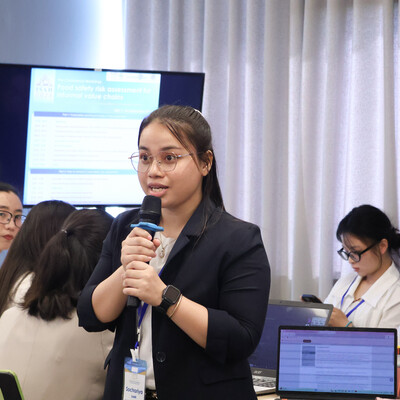
ILRI News
Workshop on food safety risk assessment strengthens capacity in informal value chains in Southeast Asia
ILRI News
SAPLING's study tour highlights successes and future opportunities in sustainable livestock farming in Northwest Vietnam
Related Publications
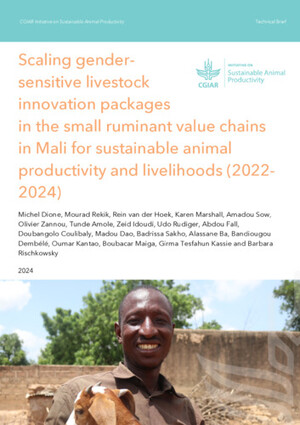
Scaling gender-sensitive livestock innovation packages in the small ruminant value chains in Mali for sustainable animal productivity and livelihoods (2022-2024)
- Dione, Michel M.
- Rekik, Mourad
- Hoek, Rein van der
- Marshall, Karen
- Sow, Ahmadou
- Zannou, Olivier
- Amole, Tunde A.
- Idoudi, Zied
- Rudiger, Udo
- Fall, Abdou
- Coulibaly, Doubangolo
- Dao, Madou
- Sakho, B.
- Ba, A.
- Dembélé, B.
- Kantao, O.
- Maiga, B.M.
- Kassie, Girma T.
- Rischkowsky, Barbara A.

Launching of the Africa Asia Dairy Genetic Gains (AADGG) platform in Nepal: Bufalo value chain
- Ojango, Julie M.K.
- Kipkosgei, Gideon
- Basnet, Suresh
- Yanamani, Nepal
- Varijakshapanicker, Padmakumar
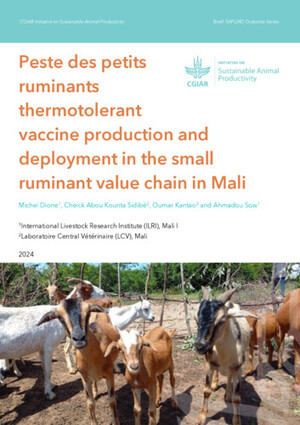
Peste des petits ruminants thermotolerant vaccine production and deployment in the small ruminant value chain in Mali
- Dione, Michel M.
- Sidibé, C.A.K.
- Kantao, O.
- Sow, Ahmadou





